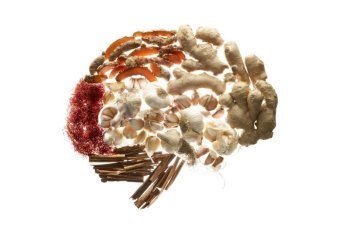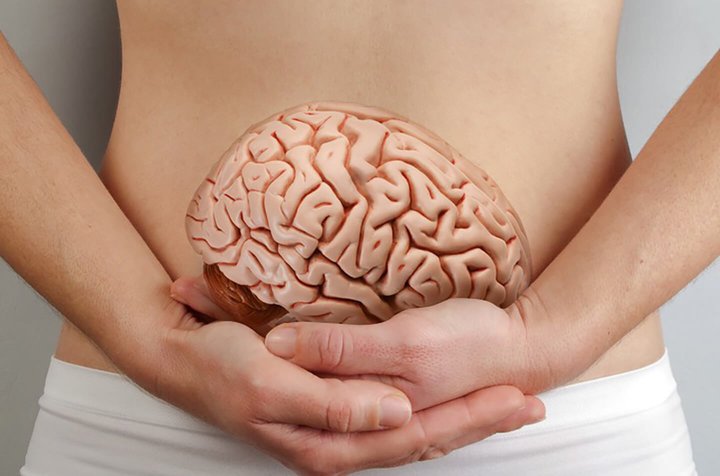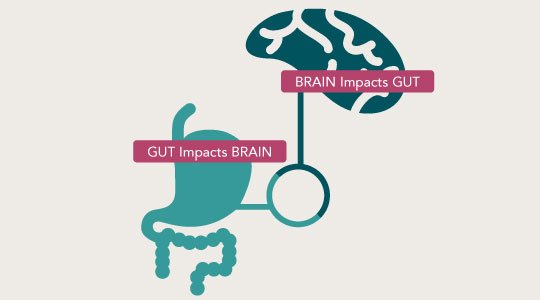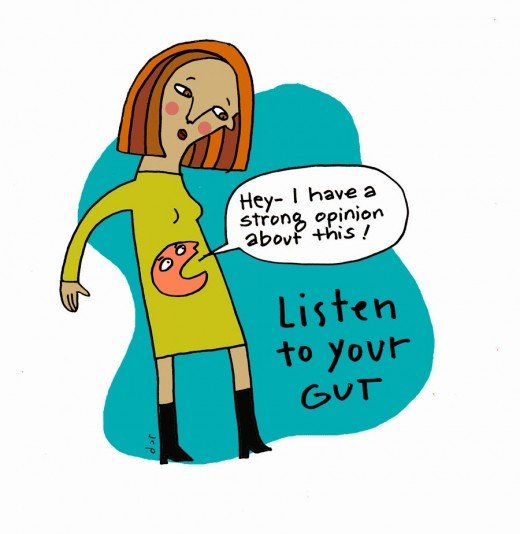Behave yourselves : your gut has a mind

Picture credit : www.abc.net.au
I remember that I saw a book concerning the second brain and it was a surprising title at first glance. Then, some days ago our teacher gave us an article on this subject so we could read and debate on it. I'm sure you'll think that it has to be one of the most interesting information ever to know how what we eat is influencing our brain and our mood from over there. This influence is surely mutual. As a future neuropsychologist I can say I learned it too late, especially if I consider the fact that my favourite subject is the « body self » which touches neuropsychology and philosophy. A lot of people – and me too - immediately think about the « gut feeling » we have when we meet a new person or when we have to do an oral presentation for example. Everyone knows what it means to have butterflies in our stomach, to get a tummy ache when we feel stressed or nervous. All of these common sensations resulted from the gut-brain link.
Apparently, neurones are everywhere

Picture credit : www.biokplus.com
There is a big network of neurons in this gut-brain link which seem to be best friends in the way that the brain is dependent on the second brain and vice versa. When you're hungry, your stomach is giving that message to your brain and the feedback is done by neurons which are continously communicating. Same goes when you have to face your stress, your feelings or your excitment. Your gut is reacting to everything you're not saying at the moment, and also to everything you're trying to hide because as Alice Miller says « the body never lies ». I read this book some months ago and it all make sense now, knowing about this gut-brain link. Alice Miller was talking about psychosomatic ilnesses coming because of all what we hide, all what we can't accept and this beautiful book tell you how much you depend on your body. That's true : we are our body.
Ecologists will be happy to know that the second brain is an ecosystem

Picture credit : www.micronutrients.com
The central nervous system is communicating with the gut thanks to our sympathic and parasympathic branches which are controlling our heart, our digestion and breathe and almost 80-90% of nerve fibres in our enteric nervous system are going from the gut to brain.
Some people will call the second brain an « ecosystem » and I personally think it's a nice appellation in the sense that it contains that vast neural network and bacteria, and our beloved enteric nervous system communicates with these bacteria which are with us since birth. They are our helpers, fighting with viruses, molds and helping digestion. When they are not happy, we feel it at that moment thanks to the neurotransmitters - transfering messages from neuron to neuron - of the enteric nervous system.
Impact on depression, anxiety, and all of these 21th century diseases

Picture credit : www.exemplore.com
It seems obvious that a healthy gut will decrease your reaction to stress, curb your cortisol level and inflammation, improve your memory and also reduce a lot of other sensations linked to stress and nervousness as anxiety and depression. I won't give you a diet list right here, saying you have to eat five fruits and vegetables per day, that's not the goal at least. I's such a protruding evidence that new eating habits will make you feel the difference ; people I know who changed their habits always repeat how better they feel and how much their mental and corporal lightness does them good. I don't really like numbers and statistics because it's over-highlighted in current researches but they say there are more than 100 million brain cell in the gut, just to let you imagine how that influence we are talking about is strong and how much it controls you.
Just a pinch of philosophy please

Picture credit : www.keele.ac.uk
A turkish expression says that a strong mind comes from a strong body, in the way that your body has to be healthy so you can think straight ; it makes sense, isn't it ? I really want to connect all of these informations to F. Varela who supported embodied philosophy. What he wrote greatly fascinates me since 3 years making me realize that we exist – in the way that we live and we experience - thanks to our body. He considers cognitive system – including knowledge, attention, memory, judgement, problem solving, decision making, comprehension, language – and consciousness as comprising the body and the physical world which are interacting. His vision refers to an interesting concept called neurophenomenology, which is a full-fledged field. The idea here is to explain how our body is invaluable, carrying the weight of all we live, all we feel, and all we eat of course.
Here are two of the sources which are very similar to what our teacher gave us at class, where you can find more details :
https://www.scientificamerican.com/article/gut-feelings-the-second-brain-in-our-gastrointestinal-systems-excerpt/
http://www.bbc.com/news/health-18779997
